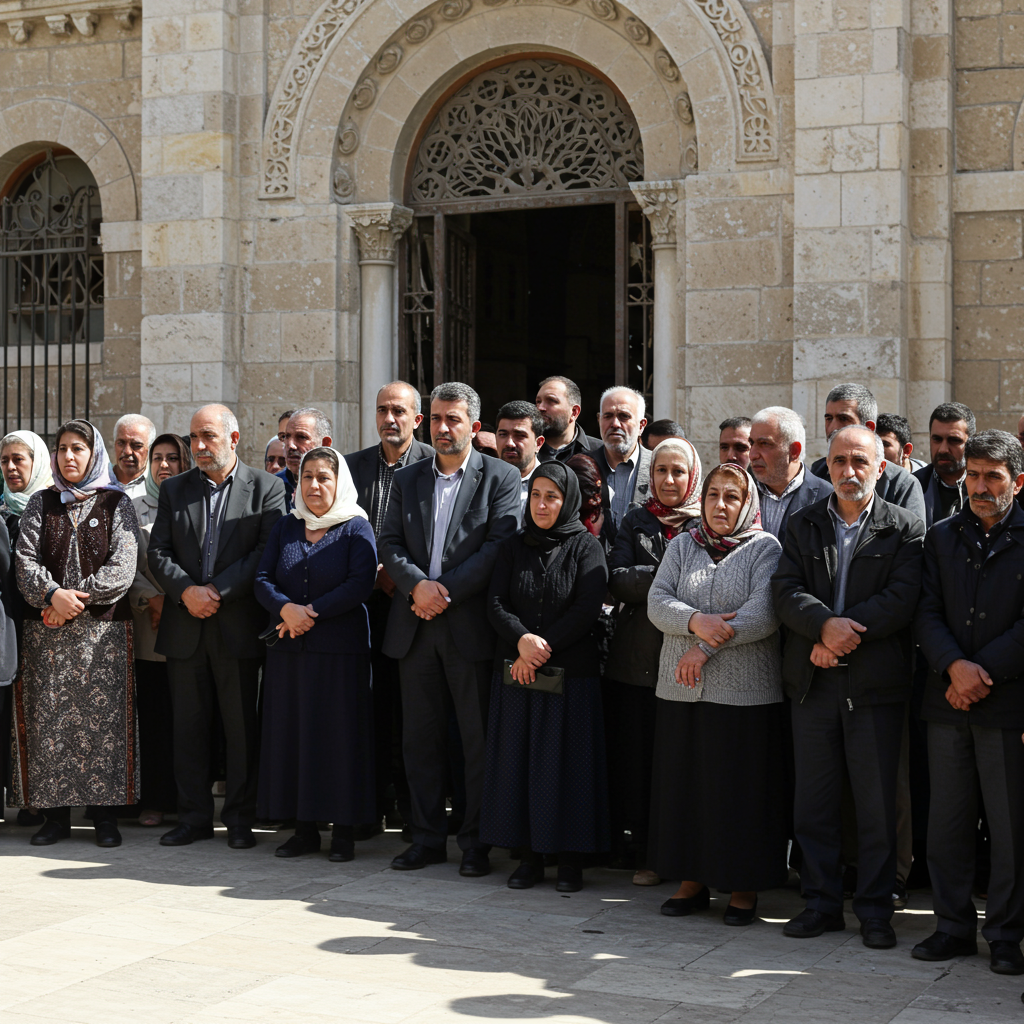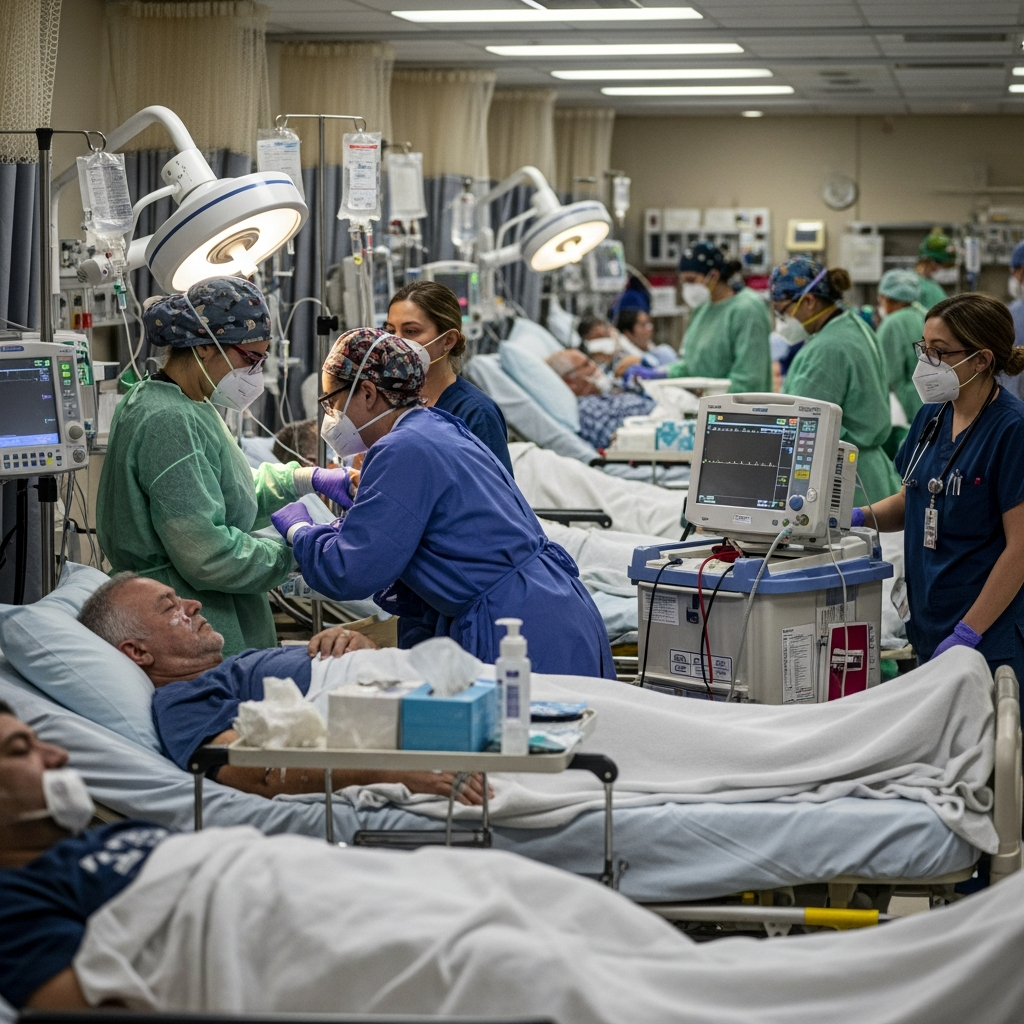syria‘s christian Community Reels Amid Rising Fears After Deadly Damascus Church attack
“Your brother is a hero.” These poignant words were shared with Emad after he learned of his brother Milad’s death in a horrific suicide bombing. The attack struck the Greek Orthodox Church of the Prophet Elias in Damascus, Syria, on June 22nd, instantly claiming Milad and two others who bravely attempted to prevent the attacker from entering the sacred building. In total, the blast killed 25 worshippers and left another 60 injured during a Sunday evening service in the Dweila suburb. This single, brutal act has sent shockwaves through Syria’s Christian community, reigniting deep-seated fears about their safety and future in the country.
The attack holds particular significance as it marks the first major assault of its kind in the Syrian capital since rebel forces, led by figures like Ahmed al-Sharaa of Hayat Tahrir al-Sham (HTS), successfully overthrew Bashar al-Assad’s regime in December, effectively ending 13 years of devastating civil war. Furthermore, it is noted as the first direct, large-scale targeted attack against the Christian community in Syria since events dating back to 1860. While Syrian authorities were quick to blame the Islamic State (IS) group, a lesser-known extremist faction, Saraya Ansar al-Sunnah, claimed responsibility, though government officials maintain the group operates under IS influence.
For many Syrian Christians, the bombing was not just a standalone tragedy; it felt like a confirmation of their worst fears under the new political landscape. Under Assad’s previous rule, many from religious and ethnic minority communities believed the state provided a degree of protection. Now, with an Islamist-led government in power, there is widespread concern that this security can no longer be guaranteed.
Living in Fear Under the New Syrian Government
The sentiment is palpable among those affected. Emad, speaking from his modest two-bedroom home crowded with relatives, recounted the harrowing experience of hearing the explosion and the anguish of being unable to reach his brother for hours. His description of Milad’s unrecognizable, burned face underscores the brutality of the attack. Emad, like his brother, worked as a cleaner in their poor, predominantly Christian neighborhood. The hardship etched onto his face reflects the challenging lives many endure.
Emad and his family voice a shared anxiety: “We are not safe here anymore.” This feeling is widespread, fueled by doubts about the new interim government’s ability to control the volatile security situation. Despite interim President Ahmed al-Sharaa’s pledges to protect all citizens, recent deadly sectarian clashes – first in Alawite coastal areas in March, followed by violence targeting Druze communities around Damascus in May – have eroded confidence in the government’s capacity to maintain order.
Angie Awabde, a 23-year-old student injured in the Church of the Prophet Elias bombing, vividly described the terror of the attack, hearing gunfire before the blast. Recovering in a hospital bed with shrapnel wounds and a broken leg, she expressed profound hopelessness about the future for Christians in Syria. “I just want to leave this country,” she stated, adding, “I lived through the crisis, the war, the mortars. I never expected that something would happen to me inside a church.” Her plea for the government to find a solution or allow Christians to leave highlights the desperation felt by many.
Erosion of Social Freedoms and Trust
Beyond the immediate threat of violence, concerns are mounting over a perceived crackdown on social freedoms under the new administration. Reports of decrees dictating women’s dress at beaches, public harassment of men wearing shorts, and the closure of establishments serving alcohol contribute to the unease. Many fear these are not isolated incidents but rather indicators of a broader agenda aimed at fundamentally altering Syrian society.
Archimandrite Meletius Shattahi, director-general of the charitable arm of the Greek Orthodox Patriarchate of Antioch, openly criticized the government’s alleged inaction. He pointed to online videos showing armed religious preachers using loudspeakers in Christian neighborhoods to openly advocate for Islam. Such displays, he argued, are not private acts but public breaches of law that the government appears unwilling to confront. He directly linked this alleged failure to enforce the rule of law to the environment that allowed the attack on the Church of the Prophet Elias to occur.
A Region-Wide Pattern of Vulnerability
The precarious situation for Christians in Syria is not unique; it reflects a wider, concerning trend across the Middle East. The region, the historical birthplace of Christianity, has seen a dramatic decline in its Christian population over the last century, dropping from around 20 percent to roughly 4 percent today. Estimates suggest that anywhere from half to two-thirds of Middle Eastern Christians have either been killed or forced to flee their ancestral lands. While this decline has roots stretching back centuries, it has accelerated sharply in recent decades due to conflict and persecution.
Examples from neighboring countries echo the fears now gripping Syria’s Christian community. In Iraq, a major exodus followed the deadly 2010 attack on Our Lady of Salvation church in Baghdad, which killed dozens. Christian leaders there cancelled Christmas services and reported congregations dwindling as families fled the country or sought refuge in the Kurdish north, despite limited opportunities there. Similarly, Coptic Christians in Egypt have faced waves of attacks on churches, kidnappings for ransom, and alleged impunity for perpetrators of violence, leading many to live in fear.
This broader regional context underscores that the Damascus church bombing, while devastating locally, is part of a larger pattern of vulnerability and targeted violence faced by Christian minorities across various Middle Eastern countries, driving significant emigration and threatening the potential “termination of communal Christian life” in parts of the region.
Government Response and Skepticism
In the wake of the Dweila bombing, Syrian interim President Ahmed al-Sharaa promised that those responsible for the “heinous” attack would face justice. A day later, security forces reported killing two suspects and arresting six others allegedly linked to an IS cell in Damascus. However, these actions appear to have done little to reassure a community profoundly shaken and mistrustful of the new authorities.
At a funeral service held under heavy security for the victims, the Patriarch of the Greek Orthodox Church in Syria, John Yazigi, delivered a powerful sermon. He stated unequivocally that “the government bears responsibility in full.” While acknowledging a condolence call from President Sharaa, the Patriarch declared it “not enough for us,” receiving applause from the mourners. “We are grateful for the phone call,” he said, “But the crime that took place is a little bigger than that.” His words highlighted the community’s demand for concrete action and accountability beyond mere condolences.
The continued presence and threat posed by extremist groups like IS also remain a significant concern. Despite their territorial defeat in Syria in 2019, the UN has repeatedly warned that IS maintains a substantial presence and may exploit the current governmental transition to increase attacks and even potentially re-establish Syria as a hub for foreign fighter recruitment. Recent UN reports estimate IS retains between 1,500 and 3,000 fighters across Syria and Iraq, with key leaders likely based in Syria. The existence of thousands of IS fighters held in prisons and tens of thousands of individuals linked to the group in camps in northeastern Syria adds another layer of complexity and potential instability.
International Context and Difficult Choices
The instability in Syria is being closely watched internationally. US Secretary of State Marco Rubio warned shortly after the regime change that Syria could be weeks away from potential “collapse and a full-scale civil war of epic proportions,” possibly leading to fragmentation. He argued that supporting Syria’s transitional authorities, despite their problematic backgrounds (like Sharaa’s former al-Qaeda ties), was critical to averting this outcome, even if it involved engaging figures who “didn’t pass their background check with the FBI.”
This perspective sheds light on the controversial decision by the US and subsequently the EU to lift sanctions on Syria. The rationale provided was that regional countries eager to provide aid were hesitant to do so under the weight of US sanctions. While acknowledging the risks of engagement, Rubio suggested non-engagement was guaranteed to fail, whereas engagement offered a slim chance of success. The State Department had previously linked sanction lifting to conditions including the protection of religious and ethnic minorities – a commitment Sharaa has made but which recent events cast into doubt. These complex international dynamics underscore the difficult choices facing global powers as they navigate a fragile Syria under new leadership.
The attack on the Church of the Prophet Elias and its aftermath serve as a stark reminder of the extreme vulnerability faced by religious minorities in Syria. The combination of extremist threats, alleged government inaction against sectarianism, and the erosion of social freedoms has left the Christian community feeling abandoned and deeply fearful for their future. As hundreds of thousands of Christians have already fled Syria since the civil war began, the question remains whether those who remain can find safety and a future in a country undergoing such profound and volatile change.
Frequently Asked Questions
Why are Syrian Christians particularly fearful under the new government?
Syrian Christians are fearful because the new government, led by groups associated with the recent rebel offensive, is perceived as less likely to protect religious minorities compared to the previous regime. This fear is intensified by recent sectarian violence targeting other minority groups (Alawites, Druze) and concerns about a crackdown on social freedoms and alleged government inaction against religious extremism in Christian neighborhoods.
What extremist groups are mentioned in connection with the Damascus church attack?
Syrian authorities blamed the attack on the Islamic State (IS) group. However, a group called Saraya Ansar al-Sunnah claimed responsibility. Government officials stated they believe Saraya Ansar al-Sunnah operates under IS control. The UN has also warned that IS continues to pose a significant threat in Syria, potentially exploiting the current transition.
How does the situation for Christians in Syria compare to others in the Middle East?
The situation in Syria reflects a wider pattern of vulnerability and decline for Christian communities across the Middle East. Similar fears and exoduses have been documented in Iraq following targeted attacks and in Egypt where Coptic Christians face persecution and violence. While the specifics vary by country, the overall trend points to a significant challenge for maintaining Christian presence and safety in the region.




